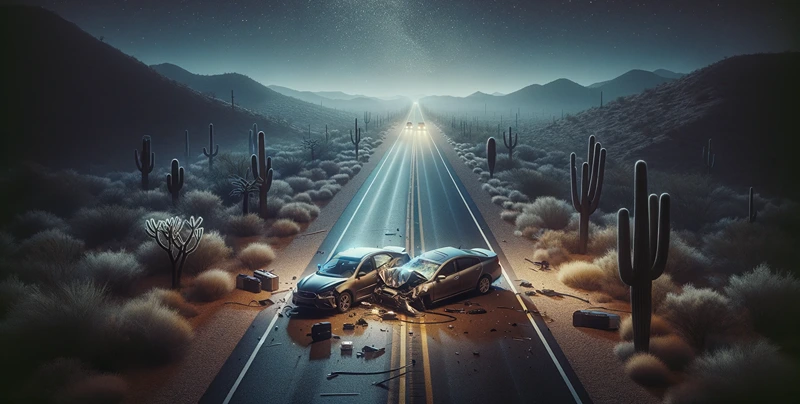
News Article: A Closer Look at Wrongful Death Claims in Arizona
Wrongful death is a devastating event that can happen to anyone, anytime, anywhere. It is the kind of loss that no amount of time or compensation can ever truly heal. However, filing a wrongful death claim can provide financial relief to the surviving family members during a difficult time. In this article, we will explore the legal aspects of wrongful death claims in Arizona, including what they are, when they can be filed, and how they can help the surviving family members move forward.
What is a Wrongful Death Claim?
A wrongful death claim is a civil lawsuit that can be filed by the surviving family members of a person who died due to the legal fault of another person or entity. According to Arizona Revised Statutes (A.R.S.) § 12-611, a wrongful death claim can be filed if the deceased person could have filed a personal injury claim had they survived. The purpose of a wrongful death claim is to provide financial compensation to the surviving family members for their loss. These claims can help cover expenses such as funeral costs, loss of income, and emotional distress.
Who Can File a Wrongful Death Claim in Arizona?
In Arizona, the following parties can file a wrongful death claim:
- The surviving spouse or domestic partner of the deceased person
- The surviving children of the deceased person
- The surviving parents of the deceased person, if no surviving spouse or children exist
- The personal representative of the deceased person's estate, if none of the above parties exist
It is important to note that Arizona law does not recognize wrongful death claims filed by siblings, grandparents, or other extended family members.
When Can a Wrongful Death Claim be Filed in Arizona?
In Arizona, a wrongful death claim must be filed no later than two years after the deceased person's death. If the claim is not filed within this time frame, it may be barred by the statute of limitations.
What Damages Can be Recovered in a Wrongful Death Claim?
The damages that can be recovered in a wrongful death claim vary depending on the circumstances of the case. In general, the following damages can be recovered:
- Funeral and burial expenses
- Medical expenses related to the deceased person's final injury or illness
- Loss of income or potential income from the deceased person
- Loss of consortium (the loss of companionship and support)
- Pain and suffering experienced by the deceased person prior to their death
- Punitive damages (in cases where the responsible party acted with extreme negligence or malice)
What is the Burden of Proof in a Wrongful Death Claim?
In a wrongful death claim, the burden of proof falls on the surviving family members. They must prove that the responsible party had a legal duty of care to the deceased person, breached that duty of care, and caused the death of the deceased person as a result of their breach. Additionally, the surviving family members must provide evidence to show the extent of the damages suffered as a result of the death.
Why Do You Need a Wrongful Death Lawyer in Arizona?
Wrongful death cases can be complicated and emotional. They require significant legal knowledge and experience to ensure a successful outcome. By hiring a wrongful death lawyer, you can receive guidance and support throughout the legal process, as well as ensure that your case is built on a strong foundation of evidence and legal arguments. Your lawyer can also negotiate with insurance companies and other responsible parties to ensure that you receive a fair settlement.
Conclusion
Wrongful death claims can provide financial relief to the surviving family members of a deceased person who died due to the legal fault of another person or entity. In Arizona, wrongful death claims must be filed within two years of the deceased person's death and can be filed by their surviving spouse or domestic partner, children, parents, or personal representative of their estate. Damages that can be recovered in a wrongful death claim include funeral and burial expenses, medical expenses, loss of income, loss of consortium, pain and suffering, and punitive damages. To ensure a successful outcome in a wrongful death claim, it is recommended to hire a wrongful death lawyer with significant legal knowledge and experience.
Arizona Wrongful Death Claim | Colburn Hintze Maletta






